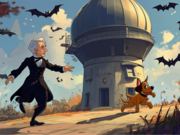多爾袞
Characters and words in 多爾袞
many; much / too many; in excess / (after a numeral) ... odd / how (to what extent) (Taiwan pr. [duo2]) / (bound form) multi-; poly-
多
=
夕
:
Mnemonic symbol: Immanuel "Many" Kant.
Many (多) and Doggy Dog (du) have great fun chasing a bat (夕) in front of the observatory (o1). After a while there are two bats (多), and it's not so easy to chase them any more. Suddenly there are more and more (多) bats! Now Many and Doggy Dog experience what it is like to be chased for a change.
Many (多) and Doggy Dog (du) have great fun chasing a bat (夕) in front of the observatory (o1). After a while there are two bats (多), and it's not so easy to chase them any more. Suddenly there are more and more (多) bats! Now Many and Doggy Dog experience what it is like to be chased for a change.
Dole (name) / Bob Dole (1923-2021), US Republican politician, Kansas senator 1969-1996
thus / so / like that / you / thou
尔
=
⺈
+
小
:
Mnemonic symbol derived from the components: a peace dove. Albert Einstein (Ø) wants to send a message of peace to earth from the space station's living room (Ø3). He wanted to give a dove (尔) a daisy (小) so that it can bring it to earth, but the dove is late! Albert has no choice but to give it to a passing crane (⺈) instead. Thus, the crane flies to earth with the daisy in his beak, just like a peace dove.
Words with 多爾袞
多爾袞
is not used as a component in another word.
Sentences with 多爾袞
多爾袞 currently does not appear in any sentence.
